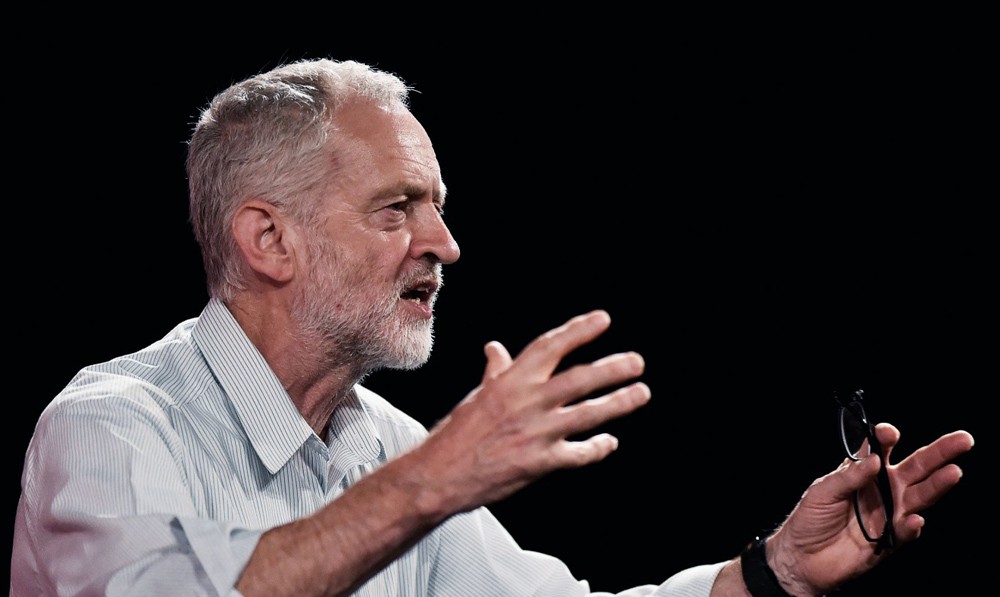
Jeremy Corbyn and the story of the British Labour Party leadership contest

Dear All,
Truth is often stranger than fiction -- and so it goes with the story of the British Labour Party leadership contest.
The ‘leftist’, backbencher candidate, Jeremy Corbyn, whose leadership bid was initially derided and ridiculed by political observers has now emerged as a very strong candidate and his election is not improbable. The 66-year old has become such a crowd-puller that the numbers showing up at his events have been too great to fit inside the venues with the result that he has had to first address the crowd inside the venues and then go outside and speak to the crowds waiting outside.
This has so baffled political observers that there has been much discussion of the whole thing being the result of a shady conspiracy by ‘the hard-left’ to infiltrate the party. Certain sections of the press have labelled Corbyn’s record of voting against the party whip (he says he votes on "principle") as an example of his lack of loyal character. Blairites have labelled the possibility of his leadership as catastrophic and insane, yet the public interest in him and the numbers turning up at his events have not decreased.
Whatever the result of the leadership contest may be (and truth is often stranger than fiction), one of the most positive things about Corbyn’s candidacy is that he has been able to generate so much discussion on viewpoints that challenge the current mainstream thinking that the only way forward is capitalism, and the only way to progress is privatisation. This mantra has been so oft repeated and so accepted -- even by the so-called socialist parties -- that it has now almost attained the establishment propaganda status of the Orwellian ‘newspeak’. Corbyn has somehow managed to challenge this ‘truth’.
Take, for example, the case of state ownership versus privatisation. Since the Thatcher era, Britain’s state-owned utilities have been dismantled and gifted to the private sector and we are told repeatedly that this has "improved efficiency" and that customers are deriving huge benefits from this. Except that it is the customers who are forced into paying exorbitant prices that no regulator seems to be able to regulate. The big energy companies, despite being chided many times for their pricing, tariffs etc, do what they like, and so mostly do the train companies. Despite this nobody has really spoken up against private ownership. But Corbyn has managed to open a debate on this.
Last week, in an interview with The Independent on Sunday, Corbyn suggested that the Labour Party "needs to reinstate a clear commitment to public ownership of industry", and that he was in favour of restoring Clause Four which commits the Party to this (it was removed by Tony Blair two decades ago). This provoked furious debate but strangely enough one got to hear many voices from the general public waxing nostalgic about the state-owned entity British Rail, and suggesting that a return to it might not be a bad thing. Some horrified commentators wrote alarmist pieces recalling the miseries of Soviet communism and the horrors of bread lines, tv journalists spoke in terms suggesting the ideas were outrageous and mad but it became clear that there was an alternative view and that it was possible to articulate it.
So, perhaps, it is not mad to challenge the mantra of capitalism. Perhaps, we need to realise that certain sectors should not be merely profit-driven. Indeed if that were the case, Britain’s National Health Service would never have come into existence. And, in my view, the NHS is truly one of the greatest, most humane achievements of any government of the last century.
There must be a way to make state-owned entities efficient and sustainable, but to find that way requires imagination and the ability to shed preconceived notions and lucrative partnerships. At least the debate has come alive again…
Best wishes